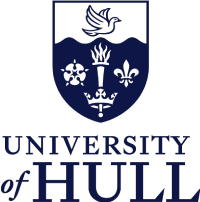About the Project
Since the onset of mass production of plastics in the 1950’s the flux of plastics to the marine environment has been a growing problem (Cole at al., 2011), such that microplastic contamination of the oceans is now one of the world’s most pressing environmental concerns (Hurley et al., 2018). Recent work highlights how such materials have been found in the full range of ocean environments from the depths of the deepest ocean trenches (Woodall et al., 2014; Fischer et al., 2015; Frid and Caswell 2017)) to coastal seas around the ice-capped poles (Waller et al., 2017; Lusher et al., 2015, Obbard et al., 2014).
Microplastic pollution is known to be interacting with organisms and entering primary levels of the marine food chain (Cole et al., 2013) causing a range of unidentified and unquantified ecological outcomes. Critically, we have little understanding of the complex biological, bio-physical and bio-chemical interactions associated with the ingestion of microplastics and how this influences their fate and the fate of marine ecosystems. Significant research is therefore needed to address some of the critical gaps in our knowledge of microplastics in the marine environment. This will be achieved by a cluster of 6 PhDs investigating the physical processes and dynamics of plastic particles from fluvial source zones, through estuarine stores to marine sinks, the ecological impacts on remote and local environments and the ecophysiological and ecotoxicological effects on individual species and ecosystems.
The cluster objectives are:
[1] To quantify ecological and biological effects of microplastics on marine ecosystems and marine invertebrate physiology (1-2; 5-6).
[2] Determine the flux, types and concentrations of micro-plastic debris exiting major riverine and estuarine systems, into the coastal and wider ocean (projects 3-4).
Summary of PhD Project
Plastic invasion of remote foodwebs.
Supervised by Dr. Cath Waller1, Dr Magnus Johnson1 , Dr David Barnes2, Dr Alexis Janosik3 & Dr Will Goodall-Copestake2
1University of Hull, 2British Antarctic Survey, 3University of West Florida.
In the last half century macro- & micro-plastics have invaded remote environments, evidenced by rapid increases in sea surface and shore surveys. Close to urban centres and in semi-enclosed seas it is clear that plastic has made multiple and considerable impacts into the foodweb particularly at higher trophic levels. In more remote localities, such as the polar regions, initial reports suggested negative interactions with higher predators, but this is likely to be spreading through trophic levels and ecological guilds.
This PhD would investigate polar samples from the Antarctic Circumnavigation Expedition (2016-17), ICEBERGS (2017-19), ChAOS (2017-19) and Atlantic samples from JR17004 ODA (2018-19). Faunal samples would be investigated for entanglement and stomach contents, and suspected microplastics verified using FTIR microscopy techniques. Results would be investigated along environment (surface vs water column vs seabed), habitat (e.g. soft vs hard substrata), trophic, guild, taxonomic and age lines to assess contrasts in ubiquity, density and impact of potential plastic invasion. As such, that we are aware of, this would break ground as a plastic study by using such a holistic matrix investigation of presence and impact across ecological characters of environment and organism. These results would be compared with background plastic levels in the abiotic environment. Literature work would be undertaken to evaluate what the main source types and geography of plastics are and whether there are viable, scaleable solutions emerging (to reduction and removal).
Applicants should have a 1st class undergraduate degree or Masters level research qualification in a relevant discipline (Ecology, Biology/, Marine Biology, Environmental Science, or related). A 2:1 may be considered, if combined with relevant experience. Additionally, experience of working in the field and knowledge of marine ecosystems would be beneficial.
To apply for these Scholarships please click on the Apply link below:
https://www.hull.ac.uk/choose-hull/study-at-hull/admissions/postgraduate/how-to-apply.aspx
PhD students at the University of Hull follow modules for research and transferable skills development and gain a Masters level Certificate, or Diploma, in Research Training, in addition to their research degree.
Successful applicants will be informed of the award as soon as possible and by 15th March 2019 at the latest.

 Continue with Facebook
Continue with Facebook

